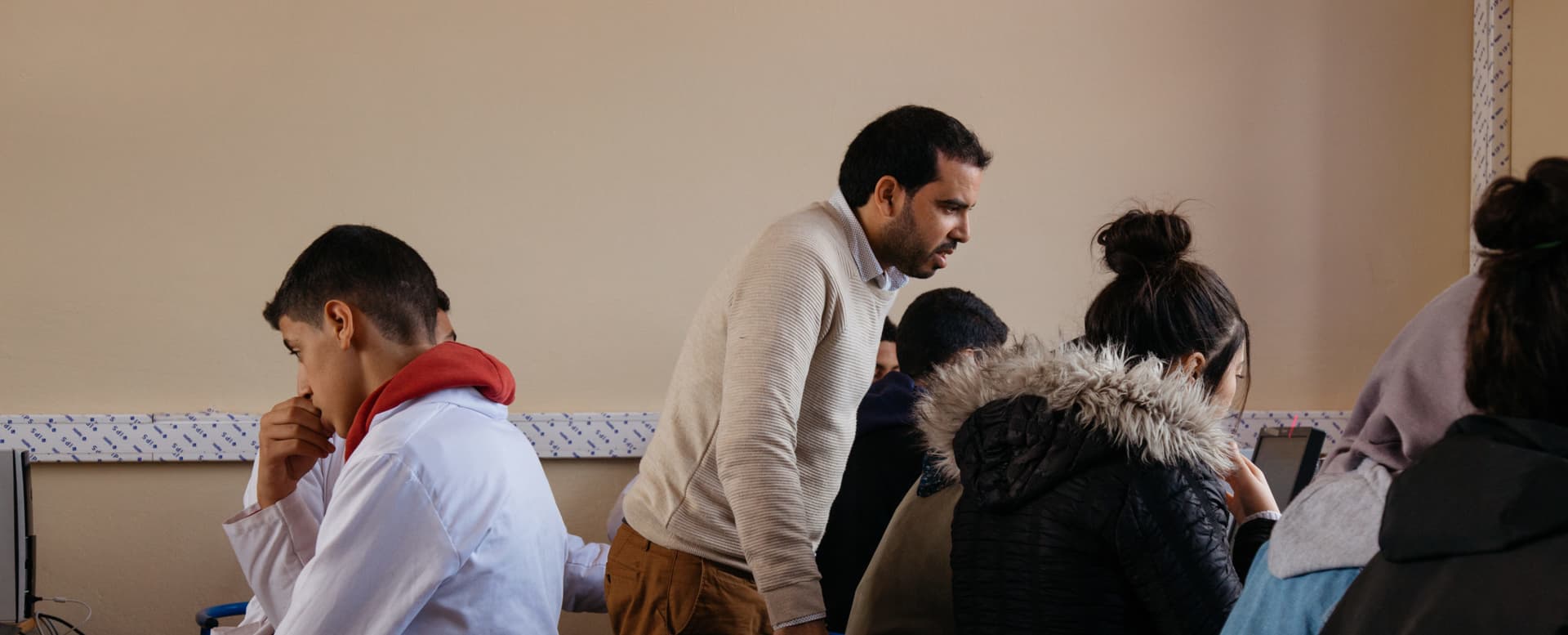

IBM Skills Build Program- e-Skilling on Futuristic Skills through Common Service Centres under CSR Activity – IBM SkillsBuild Program
Skills are central to improve employability and livelihood opportunities, reduce poverty, enhance productivity, and promote environmentally sustainable development. Coordinated efforts are needed to develop an integrated approach that improves access to relevant, good quality education and training to all rural women and men.
• Rural people’s access to education and training is often limited by financial barriers (e.g. training and transportation costs) and non-financial barriers (e.g. scarce education and training infrastructure, inflexible training schedules).
• Especially for poor rural children and adults, the opportunity costs for education and training may be too high to give up their income-generating activities and unpaid duties that help sustain their families.
• Many rural people do not have basic education. This also hampers their access to technical and vocational training or other skills development.
• Unequal gender relations and traditional gender roles entail specific difficulties for rural girls and women in accessing education and training.
• Education and training are often of inadequate quality.
• Teachers and trainers may be unqualified, equipment and technology out-dated, and teaching and training methods ill-suited to rural contexts.
• In many developing countries, training systems tend to operate in isolation from the labour market and employers’ needs, so training does not always match skills demand.
• Environmental degradation and climate change present risks to rural livelihoods that need to be managed and mitigated. This requires developing new, innovative.
“The digital platform will provide a personal assessment of the cognitive capabilities and personality via MyInnerGenius to the students. They will then learn foundational knowledge about digital technologies, as well as professional skills such as resume-writing, problem solving and communication. Students will also receive recommendations on role-based education for specific jobs that include technical and professional learning.
Key Feature of the Program
1. It is a digital platform developed by IBM and it enables holistic learning, aligning it with Skills India Initiative by Government of India.
2. India is the 4th country to launch a platform for skill building after the UK, Germany and France.
3. It will be accessible online through Bharat Skills/CSC – a learning management system for ITI/NSTI students and teachers and is free to use.
Focuses on Creating New Collar Roles
1. New Collar roles focus more on a candidate's skills during the hiring process, rather than his or her level of education.
2. A new-collar worker is an individual who develops the technical and soft skills needed to work in technology jobs through non-traditional education paths.
3. Example: Technical jobs including cloud computing technicians, database managers, cybersecurity, user interface designers and other IT roles.
The UJS works with its constituents (governments, employers’ and workers’ organizations) to improve the employability of workers, and the productivity and competitiveness of enterprises through skills development. It assists its constituents through research and knowledge sharing, policy advice and technical assistance. As concerns rural skills development, UJS currently focuses on: Reforming and strengthening skills policies and improving training systems extending training in rural communities. Our Motive is to teach future development skills to 400,000 young people by the end of 2021. We are coordinating with 6000 CSC centres in 27 states of India. Proving youth necessary tools and helping them to find jobs after the completion of their course.



